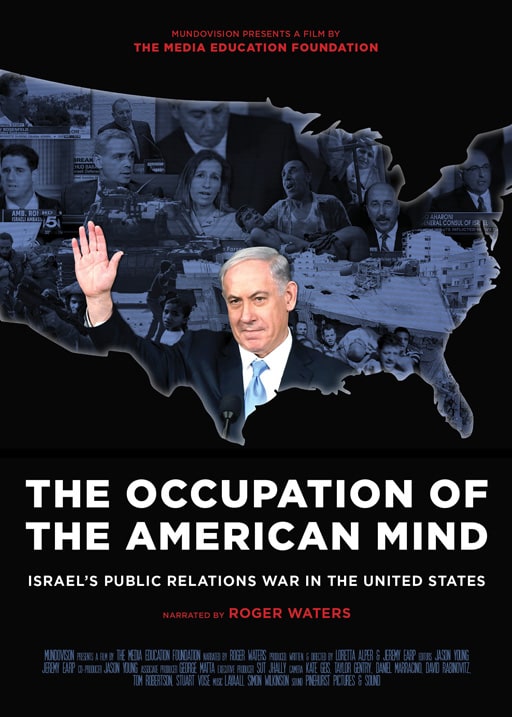Books
Overview | Recently Added | Full List
![“God does not exist, and he promised us this land” [Book Review]](https://epalestine.ps/sambahour/wp-content/uploads/2020/04/9780745335810252822529-710357-1.jpg)
by Sam Bahour | April 8, 2020 | Books, Writings
Few countries provoke as much passion and controversy as Israel. What is Modern Israel? convincingly demonstrates that its founding ideology – Zionism – is anything but a simple reaction to antisemitism. Dispelling the notion that every Jew is a Zionist and therefore a natural advocate for the state of Israel, Yakov Rabkin points to the Protestant roots of Zionism, in order to explain the particular support Israel musters in the United States. (Publisher’s Review)
![“The Hundred Years’ War on Palestine: A History of Settler Colonialism and Resistance, 1917–2017” [Recommended]](https://epalestine.ps/sambahour/wp-content/uploads/2025/03/the-hundred-years-war-on-palestine-a-history-of-settler-colonialism-and-resistance-1917–2017-by-rashid-khalidi-1.jpg)
by Sam Bahour | January 28, 2020 | Books
In 1899, Yusuf Diya al-Khalidi, mayor of Jerusalem, alarmed by the Zionist call to create a Jewish national home in Palestine, wrote a letter aimed at Theodore Herzl: the country had an indigenous people who would not easily accept their own displacement. He warned of the perils ahead, ending his note, “in the name of God, let Palestine be left alone.” Thus Rashid Khalidi, al-Khalidi’s great-great-nephew, begins this sweeping history, the first general account of the conflict told from an explicitly Palestinian perspective.
![“Days of Awe: Reimagining Jewishness in Solidarity with Palestinians” by Atalia Omer [Recommended]](https://epalestine.ps/sambahour/wp-content/uploads/2025/03/Days-of-Awe-Reimagining-Jewishness-in-Solidarity-with-Palestinians-by-Atalia-Omer.jpg)
by Sam Bahour | July 4, 2019 | Books
For many Jewish people in the mid-twentieth century, Zionism was an unquestionable tenet of what it meant to be Jewish. Seventy years later, a growing number of American Jews are instead expressing solidarity with Palestinians, questioning old allegiances to Israel. How did that transformation come about? What does it mean for the future of Judaism? In Days of Awe, Atalia Omer examines this shift through interviews with a new generation of Jewish activists, rigorous data analysis, and fieldwork within a progressive synagogue community.
![“Understanding Israel/Palestine: Race, Nation, and Human Rights in the Conflict” by Eve Spangler [Recommended]](https://epalestine.ps/sambahour/wp-content/uploads/2019/05/Understanding-Israel-Palestine-Race-Nation-and-Human-Rights-in-the-Conflict.jpg)
by Sam Bahour | May 29, 2019 | Books
The Israeli/Palestinian conflict is the longest on-going hot-and-cold war in the 20th and 21st century. In this book the author argues that human rights standards are the key to a just and sustainable solution and that, tragically, no one has ever made serious use of them in trying to end the conflict. The reader will have a comprehensive view of the conflict, its relationship to surrounding world events, and its similarities to and differences from other conflicts, especially those embedded in American race relations.
![“Our American Israel: The Story of an Entangled Alliance” [Recommended]](https://epalestine.ps/sambahour/wp-content/uploads/2020/07/51f2NC6NPsL.jpg)
by Sam Bahour | September 17, 2018 | Books
An essential account of America’s most controversial alliance that reveals how the United States came to see Israel as an extension of itself, and how that strong and divisive partnership plays out in our own time. Our American Israel tells the story of how a Jewish state in the Middle East came to resonate profoundly with a broad range of Americans in the twentieth century. Beginning with debates about Zionism after World War II, Israel’s identity has been entangled with America’s belief in its own exceptional nature. Now, in the twenty-first century, Amy Kaplan challenges the associations underlying this special alliance.
![“Wrapped in the Flag of Israel: Mizrahi Single Mothers and Bureaucratic Torture” by Smadar Lavie [Recommended]](https://epalestine.ps/sambahour/wp-content/uploads/2025/03/Wrapped-in-the-Flag-of-Israel-Mizrahi-Single-Mothers-and-Bureaucratic-Torture.jpg)
by Sam Bahour | July 1, 2018 | Books
In Wrapped in the Flag of Israel, Smadar Lavie analyzes the racial and gender justice protest movements in the State of Israel from the 2003 Single Mothers’ March to the 2014 New Black Panthers and explores the relationships between these movements, violence in Gaza, and the possibility of an Israeli attack on Iran… Weaving together memoir, auto-ethnography, political analysis, and cultural critique, Wrapped in the Flag of Israel presents a model of bureaucracy as divine cosmology that is both lyrical and provocative. Lavie’s focus on the often-minimized Mizraḥi population juxtaposed with the state’s monolithic culture suggests that Israeli bureaucracy is based on a theological notion that inserts the categories of religion, gender, and race into the foundation of citizenship.
![“Moment of Truth: Tackling Israel-Palestine’s Toughest Questions” edited by Jamie Stern-Weiner, featuring a chapter by Sam [Recommended]](https://epalestine.ps/sambahour/wp-content/uploads/2018/02/moment-of-truth-front-cover.jpg)
by Sam Bahour | February 21, 2018 | Books
Moment of Truth: Tackling Israel-Palestine’s Toughest Questions seeks to clarify what it would take to resolve the Israel-Palestine conflict, to assess the prospects of doing so, and to illuminate what is possible in Palestine. It assembles an unprecedented wealth of expertise-encompassing political leaders, preeminent scholars, and dedicated activists from Israel, Palestine, and abroad-in direct critical exchange on the issues at the heart of the world’s most intractable conflict.
![“The Way to the Spring: Life and Death in Palestine” by Ben Ehrenreich [Recommended]](https://epalestine.ps/sambahour/wp-content/uploads/2025/03/The-Way-to-the-Spring-Life-and-Death-in-Palestine-by-Ben-Ehrenreich.jpg)
by Sam Bahour | August 1, 2017 | Books
Over the past three years, American writer Ben Ehrenreich has been traveling to and living in the West Bank, staying with Palestinian families in its largest cities and its smallest villages… Ruled by the Israeli military, set upon and harassed constantly by Israeli settlers who admit unapologetically to wanting to drive them from the land, forced to negotiate an ever more elaborate and more suffocating series of fences, checkpoints, and barriers that have sundered home from field, home from home, this is a population whose living conditions are unique, and indeed hard to imagine. In a great act of bravery, empathy and understanding, Ben Ehrenreich, by placing us in the footsteps of ordinary Palestinians and telling their story with surpassing literary power and grace, makes it impossible for us to turn away.
![Kingdom of Olives and Ash: Writers Confront the Occupation [Recommended]](https://epalestine.ps/sambahour/wp-content/uploads/2017/06/KingdomofOlivesandAsh-708468-1.jpg)
by Sam Bahour | June 2, 2017 | Books
Proud to have contributed in several ways to this book project. Actually, it’s much more than a book project as you will see by who the authors are and what their riveting stories reveal.
![“On Antisemitism: Solidarity and the Struggle for Justice” by Jewish Voice for Peace [Recommended]](https://epalestine.ps/sambahour/wp-content/uploads/2025/03/On-Antisemitism-Solidarity-and-the-Struggle-for-Justice.jpg)
by Sam Bahour | March 31, 2017 | Books
Foreword by Judith Butler. When the State of Israel claims to represent all Jewish people, defenders of Israeli policy redefine antisemitism to include criticism of Israel. Antisemitism is harmful and real in our society. What must also be addressed is how the deployment of false charges of antisemitism or redefining antisemitism can suppress the global progressive fight for justice. There is no one definitive voice on antisemitism and its impact. Jewish Voice for Peace has curated a collection of essays that provides a diversity of perspectives and standpoints. Each contribution explores critical questions concerning uses and abuses of antisemitism in the twenty-first-century, focusing on the intersection between antisemitism, accusations of antisemitism, and Palestinian human rights activism. (Publisher’s description)
![“God does not exist, and he promised us this land” [Book Review]](https://epalestine.ps/sambahour/wp-content/uploads/2020/04/9780745335810252822529-710357-1.jpg)

![<a class="amazingslider-posttitle-link" href="https://epalestine.ps/sambahour/2023/09/the-bible-is-not-a-baton">The Bible Is Not a Baton [Book Review]</a> The Bible Is Not a Baton [Book Review]](https://epalestine.ps/sambahour/wp-content/uploads/2023/09/the-bible-is-not-a-baton-1790705007.png)
![<a class="amazingslider-posttitle-link" href="https://epalestine.ps/sambahour/2023/09/they-called-me-a-lioness-a-palestinian-girls-fight-for-freedom-recommended">"They Called Me a Lioness: A Palestinian Girl's Fight for Freedom" [Recommended]</a> "They Called Me a Lioness: A Palestinian Girl's Fight for Freedom" [Recommended]](https://epalestine.ps/sambahour/wp-content/uploads/2025/03/they-called-me-a-lloness.jpeg)
![<a class="amazingslider-posttitle-link" href="https://bookshop.org/p/books/a-day-in-the-life-of-abed-salama-a-jerusalem-odyssey-nathan-thrall/19664070?ean=9781250854964&next=t">"A Day in the Life of Abed Salama" [Recommended]</a> "A Day in the Life of Abed Salama" [Recommended]](https://epalestine.ps/sambahour/wp-content/uploads/2025/03/A-Day-in-the-Life-of-Abed-Salama-by-Nathan-Thrall.jpg)
![<a class="amazingslider-posttitle-link" href="https://epalestine.ps/sambahour/2023/06/from-wisconsin-to-gaza-to-jenin">From Wisconsin to Gaza to Jenin: An American Writer’s Lived Experience in Palestine [Book Review]</a> From Wisconsin to Gaza to Jenin: An American Writer’s Lived Experience in Palestine [Book Review]](https://epalestine.ps/sambahour/wp-content/uploads/2023/06/from-wisconsin-to-gaza-to-jenin-1926401834.jpeg)
![<a class="amazingslider-posttitle-link" href="https://epalestine.ps/sambahour/2023/05/peacemakers-in-israel-palestine-dialogues-for-a-just-peace-recommended-reading">"Peacemakers in Israel-Palestine: Dialogues for a Just Peace" [Recommended]</a> "Peacemakers in Israel-Palestine: Dialogues for a Just Peace" [Recommended]](https://epalestine.ps/sambahour/wp-content/uploads/2025/03/Peacemakers-in-Israel-Palestine.jpg)
![<a class="amazingslider-posttitle-link" href="https://epalestine.ps/sambahour/2022/12/non-violently-resisting-israeli-military-occupation-with-a-scalpel">Non-violently resisting Israeli military occupation, with a scalpel [Book Review]</a> Non-violently resisting Israeli military occupation, with a scalpel [Book Review]](https://epalestine.ps/sambahour/wp-content/uploads/2022/12/non-violently-resisting-israeli-military-occupation-with-a-scalpel-472741138.jpeg)
![<a class="amazingslider-posttitle-link" href="https://www.goodreads.com/en/book/show/65167107-rooted-in-palestine">"Rooted in Palestine: Palestinian Christians and the Struggle for National Liberation 1917-2004" [Recommended]</a> "Rooted in Palestine: Palestinian Christians and the Struggle for National Liberation 1917-2004" [Recommended]](https://epalestine.ps/sambahour/wp-content/uploads/2025/03/Rooted-in-Palestine-Palestinian-Christians-and-the-Struggle-for-National-Liberation-1917-2004-Xavier-Abu-Eid.jpg)
![<a class="amazingslider-posttitle-link" href="https://epalestine.ps/sambahour/2022/09/stranger-in-my-own-land">"Stranger in My Own Land: Palestine, Israel and One Family’s Story of Home" by Fida Jiryis [Book Review]</a> "Stranger in My Own Land: Palestine, Israel and One Family’s Story of Home" by Fida Jiryis [Book Review]](https://epalestine.ps/sambahour/wp-content/uploads/2022/09/stranger-in-my-own-land-1183647562.jpeg)
![<a class="amazingslider-posttitle-link" href="https://epalestine.ps/sambahour/2022/07/glory-to-god">An American Evangelical Christian Man’s Awakening to Palestine [Book Review]</a> An American Evangelical Christian Man’s Awakening to Palestine [Book Review]](https://epalestine.ps/sambahour/wp-content/uploads/2022/07/glory-to-god-1544954625.png)
![<a class="amazingslider-posttitle-link" href="https://epalestine.ps/sambahour/2022/06/the-olive-branch-from-palestine">Palestinians never stop conceding, for nothing in return [Book Review]</a> Palestinians never stop conceding, for nothing in return [Book Review]](https://epalestine.ps/sambahour/wp-content/uploads/2022/06/the-olive-branch-from-palestine-2038246591.png)
![“The Hundred Years’ War on Palestine: A History of Settler Colonialism and Resistance, 1917–2017” [Recommended]](https://epalestine.ps/sambahour/wp-content/uploads/2025/03/the-hundred-years-war-on-palestine-a-history-of-settler-colonialism-and-resistance-1917–2017-by-rashid-khalidi-1.jpg)
![“Days of Awe: Reimagining Jewishness in Solidarity with Palestinians” by Atalia Omer [Recommended]](https://epalestine.ps/sambahour/wp-content/uploads/2025/03/Days-of-Awe-Reimagining-Jewishness-in-Solidarity-with-Palestinians-by-Atalia-Omer.jpg)
![“Understanding Israel/Palestine: Race, Nation, and Human Rights in the Conflict” by Eve Spangler [Recommended]](https://epalestine.ps/sambahour/wp-content/uploads/2019/05/Understanding-Israel-Palestine-Race-Nation-and-Human-Rights-in-the-Conflict.jpg)
![“Our American Israel: The Story of an Entangled Alliance” [Recommended]](https://epalestine.ps/sambahour/wp-content/uploads/2020/07/51f2NC6NPsL.jpg)
![“Wrapped in the Flag of Israel: Mizrahi Single Mothers and Bureaucratic Torture” by Smadar Lavie [Recommended]](https://epalestine.ps/sambahour/wp-content/uploads/2025/03/Wrapped-in-the-Flag-of-Israel-Mizrahi-Single-Mothers-and-Bureaucratic-Torture.jpg)
![“Moment of Truth: Tackling Israel-Palestine’s Toughest Questions” edited by Jamie Stern-Weiner, featuring a chapter by Sam [Recommended]](https://epalestine.ps/sambahour/wp-content/uploads/2018/02/moment-of-truth-front-cover.jpg)
![“The Way to the Spring: Life and Death in Palestine” by Ben Ehrenreich [Recommended]](https://epalestine.ps/sambahour/wp-content/uploads/2025/03/The-Way-to-the-Spring-Life-and-Death-in-Palestine-by-Ben-Ehrenreich.jpg)
![Kingdom of Olives and Ash: Writers Confront the Occupation [Recommended]](https://epalestine.ps/sambahour/wp-content/uploads/2017/06/KingdomofOlivesandAsh-708468-1.jpg)
![“On Antisemitism: Solidarity and the Struggle for Justice” by Jewish Voice for Peace [Recommended]](https://epalestine.ps/sambahour/wp-content/uploads/2025/03/On-Antisemitism-Solidarity-and-the-Struggle-for-Justice.jpg)

!["The Case for Palestine: An International Law Perspective" [Recommended]](https://epalestine.ps/sambahour/wp-content/uploads/2025/03/The-Case-for-Palestine-An-International-Law-Perspective-by-John-Quigley.jpg)